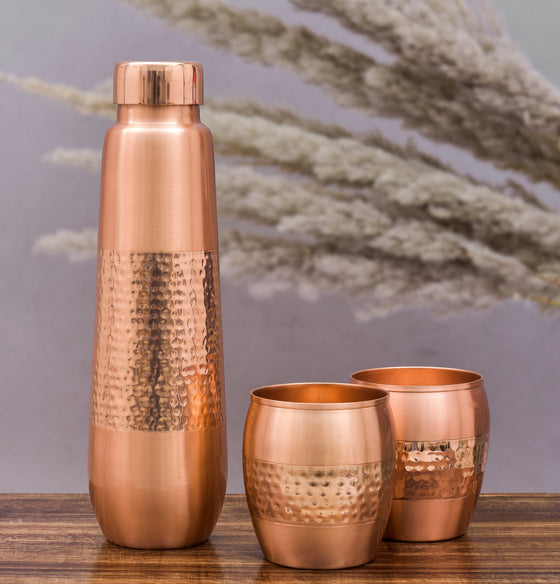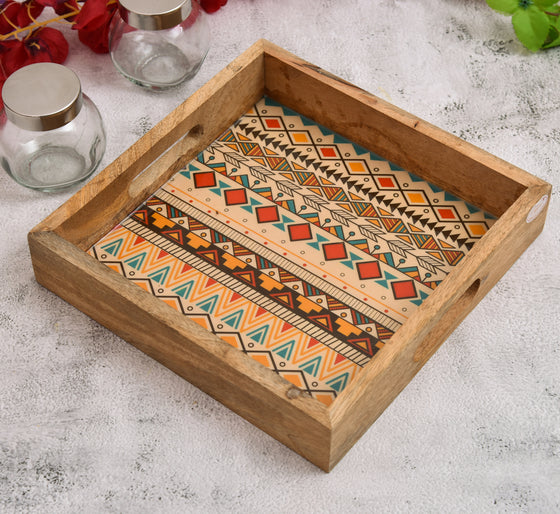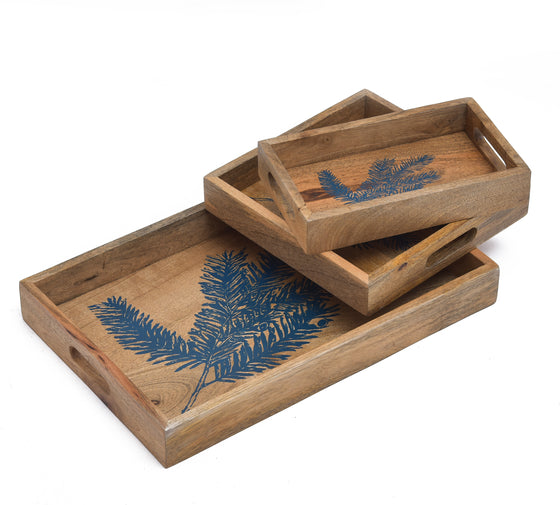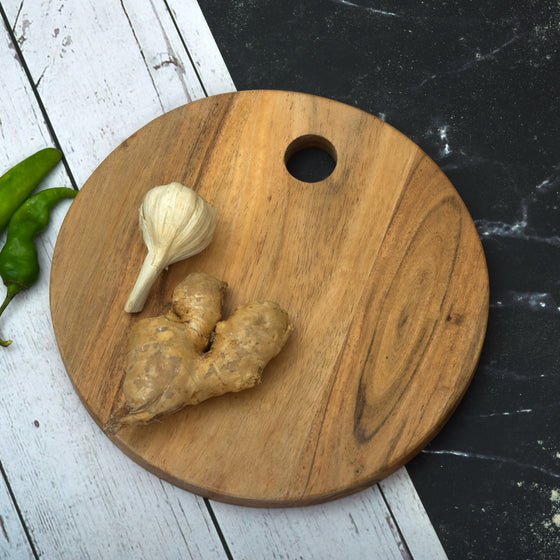Why Wooden Utensils Are Best for Your Kitchen
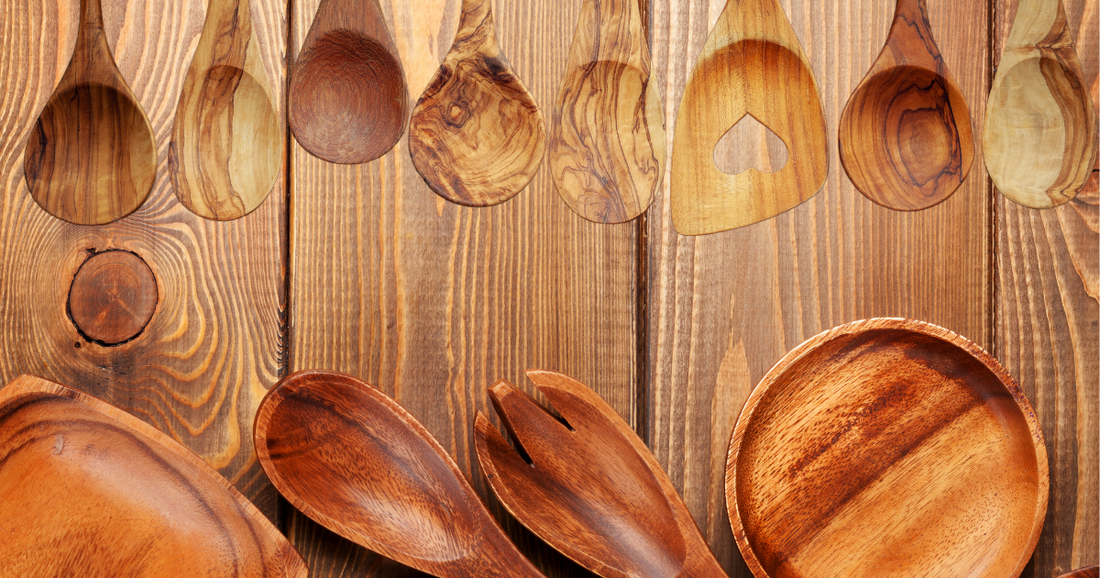
Wooden utensils remain steadfastly relevant in cooking owing mainly to their rugged durability. Numerous chefs and home cooks somehow favor wooden utensils like spoons and spatulas over metal every day. Wooden utensils are a far better option.
We'll delve deeply into the benefits of wooden utensils beneath the remarkably sturdy surface and their significant environmental advantages. Incorporating wooden utensils into culinary routines profoundly enhances the cooking experience for novice and seasoned chefs.
1. Wooden Utensils Are Gentle on Cookware
Wooden utensils work remarkably gently in delicate food preparation tasks. Wooden spoons safeguard fragile cookware like stainless steel pots and ceramic dishes against potential damage.
Why Does This Matter?
-
Metal utensils readily damage the surface of nonstick cookware over a relatively short period, significantly shortening its lifespan.
-
Wooden spoons and spatulas allow cooking freely without worrying about messing up expensive pots.
-
Cast iron pans benefit greatly from wooden spoons that help maintain their seasoning.
Investing in premium cookware calls for utilizing wooden utensils frequently during meal prep.
2. Wooden Utensils Do Not Conduct Heat
Wooden utensils stay pretty cool when exposed slowly to heat sources, making them safer to handle.
Benefits of Using Wooden Utensils in High-Heat Cooking:
-
You stir soups, stews, and various sauces quickly without burning your hand near a stove.
-
They retain little heat, thereby staying comfortable during extended periods of cooking.
-
Burns from accidental contact are rare, unlike metal utensils, which conduct heat rapidly.
You love cooking dishes that require constant stirring, such as risotto or curries, and wooden utensils offer a safe experience.
3. Wooden Utensils Are Eco-Friendly and Sustainable
Sustainability has been a major issue lately, with wooden utensils being more environmentally friendly than plastic.
Why Are Wooden Utensils Better for the Environment?
-
Made from natural, biodegradable materials, they generally contribute little to the accumulation of plastic waste, which happens slowly over long periods.
-
They originate from sustainable sources naturally over time and get broken down at the end of the lifespan.
-
Wooden spatulas strangely withstand harsh heat conditions like plastic utensils without releasing nasty chemicals into food under extreme circumstances.
Eco-friendly individuals naturally choose wooden utensils and foster a remarkably sustainable kitchen atmosphere.
4. Wooden Utensils Do Not React with Food
Metal utensils made of aluminum react with acidic foods like citrus and vinegar weirdly beneath murky surfaces. Wooden bowls react minimally with food ingredients under various circumstances, ensuring flavors remain pure.
Benefits of Non-Reactive Wooden Utensils:
-
Retain flavors in your dishes naturally every time.
-
Food lacks that nasty metallic residue.
-
Safe with pretty much everything, including acidic foods and alkaline ones too.
Food purists loving authentic ingredient flavors often favor wooden kitchen utensils over other materials due to their nonreactive nature.
5. Wooden Utensils Are Durable and Long-Lasting
High-quality wooden utensils generally last many years under diligent care. Wooden spoons and spatulas stay remarkably sturdy over time with relatively minor wear.
How to Maintain Wooden Utensils for Longevity:
-
Gently wash those items by hand using mild soap under warm running water, avoiding machines.
-
Dry swiftly after washing and minimize the risk of severe cracking.
-
Periodically, they get conditioned with mineral oil that's food grade, or sometimes beeswax maintains smoothness.
Adhering closely to strict guidelines helps your wooden utensils stay remarkably well preserved over a lengthy period.
6. Wooden Utensils Are Naturally Antibacterial
Most people believe that wood soaks up bacteria somehow beneath its surface, yet research reveals that mango wooden spoons have inherent antibacterial qualities.
Why Are Wooden Utensils More Hygienic?
-
Wood possesses inherent germ-killing capabilities naturally.
-
Wooden utensils prevent bacteria from spreading due to their solid composition beneath rough textured surfaces.
-
Properly drying wooden utensils prevents bacterial growth on spoons.
People prioritizing hygiene in cooking spaces often prefer wooden utensils over plastic or silicone alternatives for daily meal prep.
7. Wooden Utensils Are Comfortable and Aesthetically Pleasing
Acacia Wooden utensils possess a certain je ne sais quoi, adding warm fuzzy vibes beneath sleek kitchen countertops.
Benefits of Wooden Utensils in Kitchen Aesthetics:
-
They suddenly bring rustic charm and classic vibes to your kitchen area.
-
They come in various wood types, like bamboo or acacia wood, and are near your kitchen décor.
-
Ergonomically designed handling feels pretty smooth, allowing pleasant cooking experiences overall.
Wooden utensils are fabulous if you love stylish kitchen tools that combine sleek functions beautifully.
8. Wooden Utensils Are Versatile for All Cooking Needs
Wooden utensils prove sufficiently versatile for baking or frying a slow-cooked meal in a heavily seasoned skillet.
How Wooden Utensils Enhance Cooking Versatility:
-
Stirring thick batters and soups becomes relatively easy with this tool.
-
Ideally suited for rapidly flipping pancakes, eggs, and various grilled food items nearby.
-
Fantastic tools are generally utilized along with various serving dishes.
You need a versatile tool in your kitchen: wooden utensils that can suddenly handle almost everything behind your counter.
Final Thoughts: Why Wooden Utensils Are the Best Choice
Wooden utensils from OGGN Home offer many benefits vastly superior to metal or plastic alternatives. They protect environmentally friendly, durable, and aesthetically pleasing cookware, enhancing overall cooking.
Consider switching to wooden utensils for a fun, somewhat sustainable cooking experience. They bring practicality and charm directly into your kitchen, benefiting health in numerous ways and the environment simultaneously.
